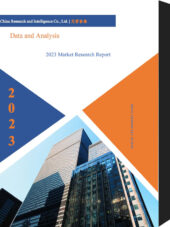Description
A tire is a circular component, which fits on a circular rim and carries the vehicle load as well as it provides the vehicle, better road grip. The vehicle load is transferred through axles to the tire. The automotive tires are made up of synthetic rubber, wire, natural rubber and fabric. The tires are made up with ply cords and plies. The rim attached to the tire helps insert air pressure in the tire to seal the flanges of the wheel rim. The tire and rim form an airtight seal, which does not allow the tire to puncture easily. Innovation in automotive tires have resulted in the emergence of tubeless tires, which do not require inner tubes unlike traditional tires, which have low durability.
Governments across the world are promoting nanomaterials, which are both, eco-friendly and cost-effective. Various automotive tire manufacturers are investing heavily to produce highly durable, and affordable tires. Increase in demand for low rolling resistance tires, tire retreading and recycling, and cost-effective durable tires, drive the automotive tire market.
For study, global automotive tire market has been segmented based on type, section width, end market, vehicle type and region. Based on type, the market has been segmented into radial, bias segments. Amongst them, radial tire segment has the largest market size due to wide and rigid construction. On the basis of section width, the market is segmented into <200 mm, 200-230 mm, >230 mm. Among these, 200-230 mm segment has the largest market share due to suitable for cars, mid-size SUVs, and some light trucks. Also, 200-230 mm tire is the most common section width and has a long tread life, which inhibits them to offer excellent steering control. On the basis of vehicle type, the market is segmented into passenger car, and commercial vehicle. Passenger car segment dominates the market, with ~70 billion passenger cars sold globally in 2017. Such growth of the segment propels the demand of tires in the automotive industry. Based on end-use, the market is segmented into OEM and aftermarket. Aftermarket segment dominates the market, as there has been a surge in the average life of vehicles due to the introduction of new advanced tires and integration with advanced technologies. Based on regions, the market is segmented into North America, Europe, Asia-Pacific, and Rest of the world.Table of Contents:



